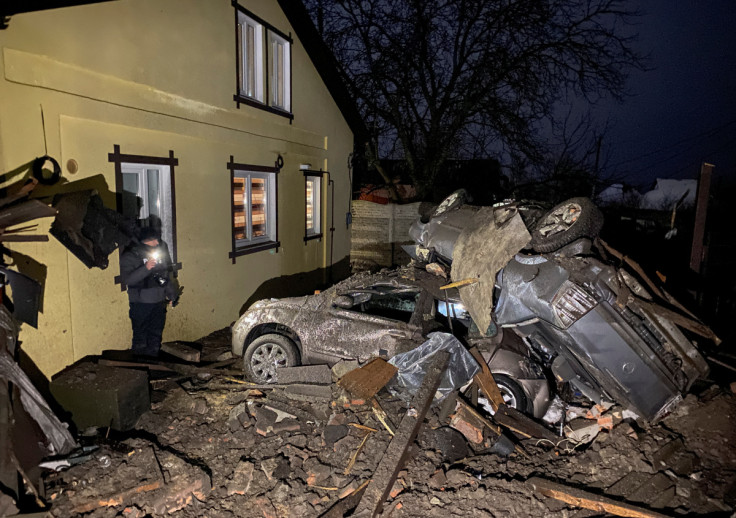EU tops up Ukraine's arms fund, discusses Russia, Iran sanctions
European Union foreign ministers agreed on Monday to put another 2 billion euros ($2.1 billion) into a fund that has been used to pay for military support for Ukraine, after it was largely depleted during almost 10 months of the war.

European Union foreign ministers agreed on Monday to put another 2 billion euros ($2.1 billion) into a fund that has been used to pay for military support for Ukraine, after it was largely depleted during almost 10 months of the war.
More top-ups may be possible at a later stage, said the European Council grouping of the bloc's member states.
"Today's decision will ensure that we have the funding to continue delivering concrete military support to our partners' armed forces," EU foreign policy chief Josep Borrell said.
In their monthly meeting in Brussels, ministers will also try to agree on further sanctions on Russia and Iran.
However, it remained unclear whether Hungary will block these decisions, resorting to what diplomats have denounced as "blackmail diplomacy" due to a dispute over locked EU funds for Budapest.
"There is agreement, in principle, but there's also the big elephant in the room," a senior EU diplomat told reporters, referring to Budapest's use of its veto power. "It's a type of blackmail diplomacy that we would rather not see, but it is what it is."
Regarding Iran, foreign ministers are due to review new sanctions over human rights abuses in Tehran's crackdown on protesters and the supply of drones to Russia.
"We are going to approve a very tough package of sanctions", Josep Borrell said ahead of the meeting. The EU "will take any action we can to support young women and peaceful demonstrators."
German Foreign Minister Annalena Baerbock said the sanctions would target Iran's Revolutionary Guards, among others.
"With this sanctions package, we are targeting in particular those who are responsible for the executions, the violence against innocent people...these are especially the Revolutionary Guards," she told reporters.
Baerbock spoke after Tehran executed a second man involved in anti-government protests following calls by the Revolutionary Guards for Iran's judiciary to act swiftly and decisively.
The ministers will also discuss a ninth package of Russia sanctions that is set to place almost 200 more individuals and entities on the EU sanctions list, but in the morning Borrell stressed there was still no agreement on this at this stage. He hoped that could come later on Monday or on Tuesday.
Foreign ministers are set to pave the way for a three-year military mission to Niger, with 50-100 troops at first and later up to 300 to help the country improve its logistics and infrastructure.
One of the poorest countries in the world, Niger is seen as being at risk of a possible spillover of violence from neighbouring Mali, where Islamist militants are gaining ground following the withdrawal of French and other European forces.
($1 = 0.9497 euros)
Copyright Thomson Reuters. All rights reserved.





















